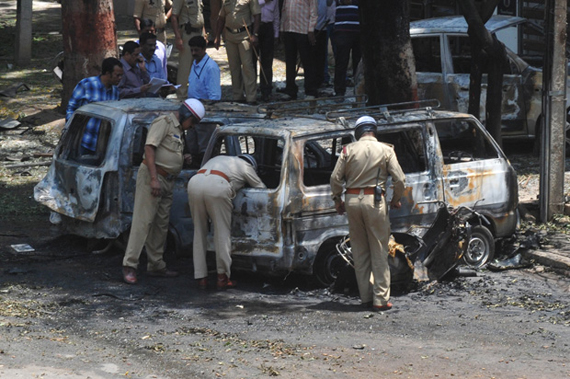
How did you land in this case?
I hail from Melapalyam district of Tamil Nadu. I have lived in Bengaluru for the past seven years and sell tealeaves at Tannery Road area of the city. I was arrested from Chennai on 18 April, the day after the blast. I was shopping for my sister's marriage when policemen in plain clothes arrested my brother-in-law Basheer and me. We were grilled till late midnight, and then handed over to the Karnataka police. On 19 April, we were produced before the magistrate's court in Bengaluru. It was then that I realised that I was being framed in the BJP office blast case. Until then the police just kept asking me if I knew Panna Ismail, which I denied. I have never met him. It was later that I learnt that my brother-in-law's SIM card was with Ismail and I'd called on that number. That's how I was trapped in this case.
You were in Karnataka police's custody for a month. What happened in that one month?
It was the worst period of my life. I went through much mental agony. Had I stayed there for another 15 days, I would have had a mental break down. Our hands and feet were chained when we were brought to Bengaluru from Chennai. Karnataka police wanted me to accept my involvement in the blast. When I refused, they wanted me to identify Panna Ismail at least. After three days, they said because they have nothing against me they would release me in exchange for a favour. They wanted me to testify before the magistrate that Panna Ismail came in a bike and left a green polythene bag at my place. I refused immediately saying that I live in an area where around 10,000 people from Melapalyam live. If I were to accept any involvement in the case, nobody would give a house to our people and everybody would look at us with suspicion.





Comments
Add new comment